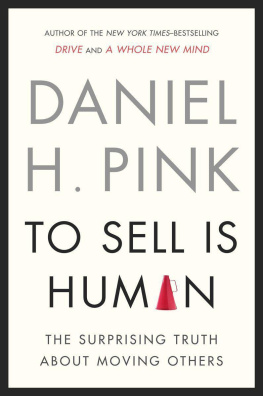
Praise for
Exceptional
How many of us hold ourselves back from the life we truly want to live? Through remarkably engaging stories and compelling studies, Dan Cables Exceptional gives us the opportunity to experience our worth, and the practical tools to act on what we do best, so we can live a life that is truly exceptional.
francesca gino, Harvard Business School professor and author of Rebel Talent
Crafting our lives, and our work, around our strengths helps us get the most out of life, but unfortunately its hard for many of us to know where to start. Dan Cables book Exceptional makes it easy to tap into your raw potential.
GARY HAMEL, author of the worldwide bestseller The Future of Management
Its a classic question: How can we improve ourselves and take on fresh identities when new behaviors often do not feel natural? Exceptional shows how you can live a better life by stretching into your strengths, practicing your way into new behaviors, and expanding your contributions.
Herminia Ibarra, bestselling author of Act Like a Leader, Think Like a Leader
Dan Cable effectively breaks down the science behind who we think we are, and the habits needed to unlock our greatest strengths. Astute, inspiring, and impressively researched, Exceptional offers insights so clear and compelling youll wonder why you hadnt identified and applied them earlier.
WILLIAM P. LAUDER, Executive Chairman, The Este Lauder Companies

Text copyright 2020 by Daniel M. Cable.
All rights reserved. No part of this book may be reproduced in any form without written permission from the publisher.
Library of Congress Cataloging-in-Publication Data
Names: Cable, Daniel M. (Daniel Merle)
Title: Exceptional : build your personal highlight reel and unlock your potential / by Daniel M. Cable.
Description: 1st Edition. | San Francisco : Chronicle Prism, 2020. | Includes bibliographical references. |
Identifiers: LCCN 2020015212 | ISBN 9781452184258 (hardback) | ISBN 9781797201559 (ebook)
Subjects: LCSH: Self-actualization (Psychology) | Self-confidence. | Resilience (Personality trait)
Classification: LCC BF637.S4 C3125 2020 | DDC 158dc23
LC record available at https://lccn.loc.gov/2020015212
Interior Design by Pamela Geismar.
Typesetting by Happenstance Type-O-Rama.
Cover design by Kathleen Lynch / Black Kat Design.
Names in this book have been changed to ensure privacy and confidentiality.
Chronicle books and gifts are available at special quantity discounts to corporations, professional associations, literacy programs, and other organizations. For details and discount information, please contact our premiums department at corporatesales@chroniclebooks.com or at 1-800-759-0190.

Chronicle Prism is an imprint of Chronicle Books LLC, 680 Second Street, San Francisco, California 94107
www.chronicleprism.com
To Alison, Daisy, and Violet
CONTENTS
Introduction
A t age nineteen, Rebecca could not find her way around the block. As described by neurologist Oliver Sacks, when getting dressed to go outside, Rebecca might spend an hour jamming a hand into the wrong glove and wasnt able to unlock the front door on her own. Her grandmother, who had raised her from age three, said she was just like a child in many ways. Rebecca had always felt that others focused on her many limitations, often making fun of her, and as a result she was painfully shy and withdrawn.
When Sacks first met Rebecca he saw her as a casualty, a broken creature. As part of a clinical program, she had done appallingly in her testing. Like his colleagues before him, Sacks could easily pick out and dissect her neurological impairments, breakdowns, and intellectual limitations.
The next time Sacks saw Rebecca, however, it was very different. Instead of a test situation, he had come across her on a park bench on a warm spring day. Rebecca sat, gazing at the April foliage with obvious delight. Sacks wrote, Her posture had none of the clumsiness which had so impressed me before. Sitting there, in a light dress, her face calm and slightly smiling... she could have been any young woman enjoying a beautiful spring day. As Sacks approached, she turned and gave him a broad smile. The words she spoke came out in poetic spurts, odd and sudden: spring, birth, seasons, and everything in its time.
The goal of the clinical tests had been to measure and reveal Rebeccas insufficiencies. However, the tests gave no insight into her positive abilities. As Sacks began to understand Rebecca better, he also saw her core strengths. There were times when, compared to her own average, Rebecca was exceptional.
When she danced, for example, all her clumsiness disappeared. While emotionally disengaged during her testing, outside the clinic she was affectionate and showed deep attachment to her grandmother. She had a love for nature, spending many happy hours in city parks and botanical gardens. Although she was unable to read or write, Rebecca responded to poetry when it was read to her. And at times, like that spring day, she used beautiful, apt metaphors.
Superficially, Rebecca was a mass of incapacities, but at a deeper level there was a sense of calm and completeness, of being fully aware and alive.
The clinical program pressured Rebecca into a variety of improvement workshops and classes that simply didnt work for her. While the goal was to help her, and patients like her, become more efficient and functional in everyday tasks, Sacks observed, What we did was to drive them full-tilt upon their limitations, as had already been done, futilely, and often to the point of cruelty, throughout their lives. For many decades the fields of psychology and neurology have far too often focused on peoples defects and how to fix them. Rebecca had spent the last nineteen years living with her limitations, and these tests and classes served as a constant reminder of where she didnt meet societys conventional standards.
After her grandmother died, Rebecca said she would have no more classes. As she put it, The classes, the odd jobs, have no meaning. When Sacks asked what might work better, she said she loved the theater. Sacks removed Rebecca from the classes and instead enrolled her in a special theater group. Rebecca began to thrive. Sacks wrote, It composed her; she did amazingly well: she became a complete person... the theatre group soon became her life.
We all are limited in so many ways. Like Rebecca, none of us is perfect physically, psychologically, or emotionally. And often we focus on our many limitations. In fact, it is our first instinct to start with critical self-evaluation.
We work hard to identify and emphasize our weaknesses because, through practice and effort, we can improve some of our personal shortcomings and move them toward the average of other people. And because of this, many of us drive ourselves full-tilt upon our own limitations, often to the point of self-cruelty.
Marcus Buckingham, author of Now, Discover Your Strengths, called this approach remediation. Remediation is working hard to improve from being terrible at something to being not too bad. Sure, we all need to keep improving the areas in our lives that hold us back. But when we spend all our resources and time
Next page
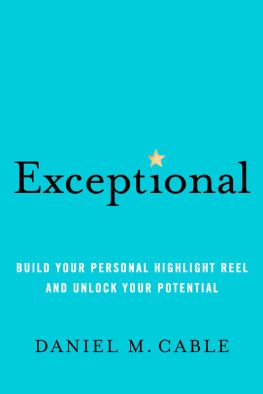

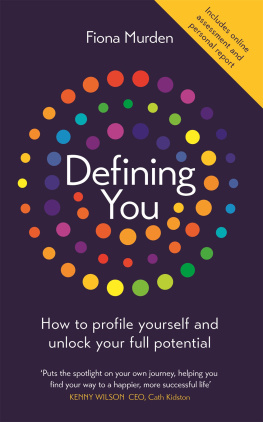
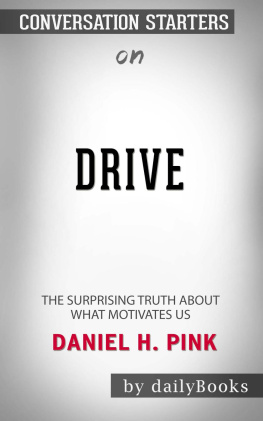
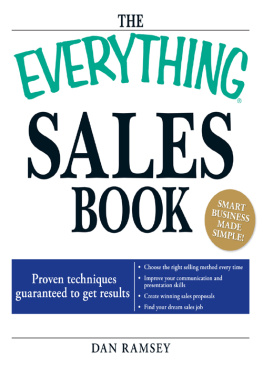
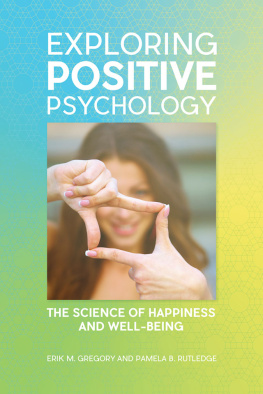
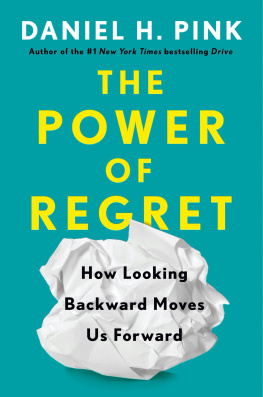
![Pink - To sell is human-- in 30 minutes: the expert guide to Daniel H. Pinks [critically acclaimed book]](/uploads/posts/book/227093/thumbs/pink-to-sell-is-human-in-30-minutes-the-expert.jpg)
